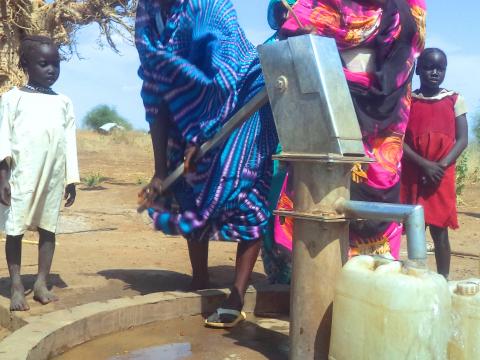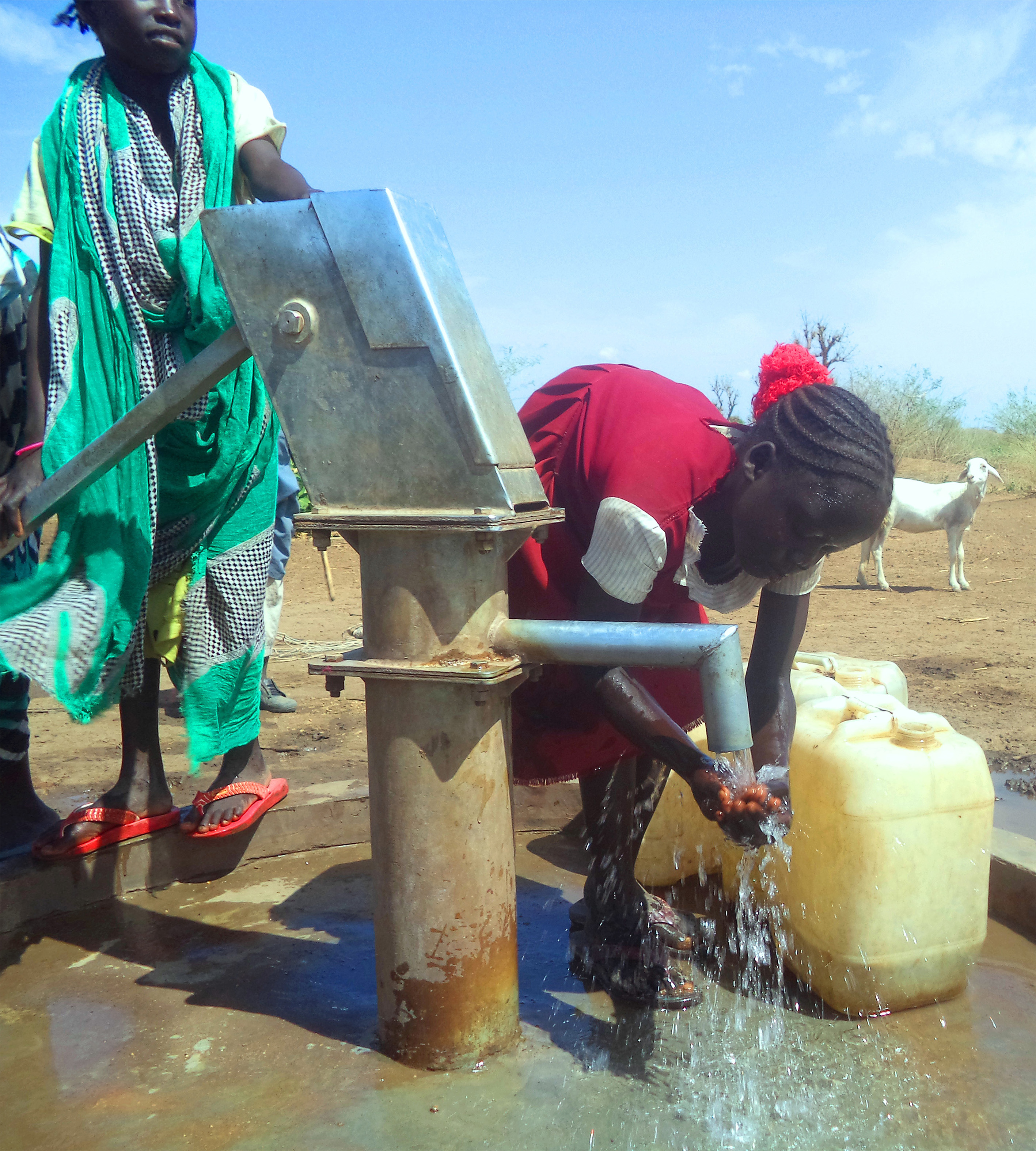Fetching water is no longer a tough job in Shanisha village

Damazin, Blue Nile State- 26-year-old Rabeha Omar Abbas, a mother of two children, comes to a water hand pump installed by World Vision, in Shanisha village in Roseiris locality, to draw clean drinking water on a daily basis.
However, before the water pump was installed in this village, accessing water was difficult and time consuming. “Women and children walked more than four kilometres down to the river to draw water,” Rabeha narrates. “Even worse, during those bad days, it took us as long as three hours -to and from- every day to get water from the river.”
Things have dramatically changed now. “A new hand pump, clean water coming out of it, few minutes to fill the containers, and before I know it, I am back in the house attending to other duties,” she says. What’s more refreshing is that we can even quench our thirst on the spot. Rabeha also notes that there is enough water to meet their household needs.
Shanisha village, situated approximately 42 kilometers from Damazin, the capital of Blue Nile state, is host to an estimated 3,000 new internally displaced persons (IDPs) from neighbouring localities.
World Vision through the support of Korean donors is funding an early recovery project in the water, sanitation and hygiene (WASH) sector, across 18 villages within Roseiris locality.
Between 2015 and 2016, World Vision in partnership with the state government of Blue Nile state through the Water and Environmental Sanitation (WES) programme, and local implementing partner Al Salam Organization for Reconstruction and Development (AORD), drilled 20 boreholes across the 18 villages. In total, the project is directly benefitting 15,801 IDPs within the locality.
Through the project, World Vision aims to facilitate the most vulnerable households to access clean drinking water among other basic services.
Ahmad Hassaballah, the Manager of WES programme in the Ministry of Urban Planning and Public Utilities says the drilling of the water boreholes is very timely. Dewa, one of the villages in the locality, recently suffered an influx of IDPs and the water pumps came in very handy.
The water has not only met the urgent water needs of residents, but more importantly, promoted peaceful co-existence among the different communities,” Hassaballah remarks. Younis al Makda, Sheikh of Shanisha, adds that the children of Shanisha are now keen on their personal hygiene and sanitation because water is available.
The availability of several water points has also reduced frequent migration of nomadic farmers. A total of 900 nomads in one of the villages, who were previously known to migrate from one place to another in search of water for their livestock have now settled in one place.
Hassaballah reaffirms the state government’s commitment to continue providing sustainable services to vulnerable populations in Blue Nile state in coordination with World Vision and other partners. He also commended World Vision’s role in contributing to the provision of essential WASH services to the most vulnerable communities in Blue Nile.
Elsewhere in three other target villages i.e. Kadamo, Kadous, Dar al Salam and Ammara Ghoro; residents used to buy 20 litres of water at more than half a dollar (USD 0.6), which ordinarily is expensive for most rural households. The project has however eased this burden for most of the poor households, says Faisal Ismail, WASH officer- AORD.
For nine-year-old Faiza Kamon, a pupil studying at Shanisha Basic School, fetching water time is also time for her to reconnect with many of her friends who also come to the water point to collect water. Faiza, who lost her mother in 2015, comes to the water point, daily after school, accompanied by her stepmother Rabeha to fetch water for household use. “I especially enjoy pumping the water,” she says. Faiza is also happy that she and her family now have plenty of water to wash their clothes regularly.
“Before, we had to rise up very early to go down to the river. If we did not start the journey early enough, we suffered from the hot sun especially on our way back home with heavy water containers on our heads. “Now it only takes us about five minutes to get to the water pump and draw the water. World Vision has also installed a hand water pump at Faiza’s school.
To ensure continuity of the project, the project has equipped 120 people drawn from all the target villages. In total there are 10 WASH committees whose members manage the operation of the hand pumps. Another 48, who are caretakers of the hand pumps have been trained on basic operation and maintenance of the hand pumps and provided with special tools and standard tool kits to facilitate their repair and maintenance.
Gamal Ghallab, communications officer for World Vision Sudan
